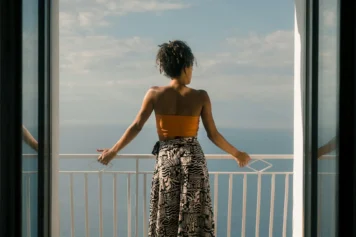So, I’m sitting in a hotel in upstate New York with my feet in a bucket of warm water charged with electricity when it suddenly hits me that maybe “getting well” wasn’t going to be as much fun as I thought it was going to be.
The procedure I was receiving was an “ionic detox foot bath,” one of dozens of allegedly medicinal services offered during a Health and Wellness Weekend held in November at the Edge Hotel, a woodsy establishment in Lyons Falls, N.Y. In this case, the bath involved placing my feet in a small bucket of salt water charged with a small current for half an hour — a process that was meant to draw out the “yucky stuff” in my body by osmosis according to its practitioner, a frizzy-haired former chain smoker named Brenda, who assured me the bath was perfectly safe.
“But,” she added with a laugh, “I don’t know anything about ampage.”
Oh boy. At first glance, this mission had seemed like a breeze: a search for “wellness” — that seemingly unimpeachable state that has become as common a come-on in travel circles as “eco-friendly.” There are wellness retreats, wellness diets, wellness beauty treatments, wellness classes, wellness resorts, wellness hotels, wellness weekends and, of course, wellness experts.
“Wellness is this feeling of confidence, this feeling of vitality, this feeling of “You got this,’ ” said Dr. Jim Nicolai, the medical director of the Andrew Weil integrative wellness program at Miraval Resort and Spa, in Tucson, Ariz. “Wellness is a verb just as much as an adjective.”
And, often, a very lucrative verb, dressing up everything from alternative medicines to anti-aging products. A week at Miraval, for example, can set you back $475 a night. And it’s not just for scenic spots either: the MGM Grand in Las Vegas has added special wellness rooms and suites; Canyon Ranch’s SpaClub in Vegas also employs “wellness professionals.” In October, the InterContinental Hotels Group, which owns Holiday Inn, announced plans for its Even Hotels — with an “intrinsic focus on wellness in terms of food, work, exercise and rest” — at dozens of locations across the country. So-called wellness tourism is estimated to be a $106 billion chunk of the trillion-dollar worldwide “wellness cluster,” a market that includes travel as well as things like medical tourism, nutrition and fitness, according to a 2010 study prepared for the Global Spa and Wellness Summit by SRI International, an independent, nonprofit research firm.
But what exactly is wellness? I thought I’d find out. And so, saddled with a sore Achilles’ tendon, an ever-present threat of heartburn and all manner of life stressors, I embarked on a cross-country search. I was left, on various occasions, body-weary, sleep-deprived and incredibly waterlogged. Along the way I meditated and hyperventilated, and was plyometric-ed, watsu-ed and ceremonially “crowned.” I hiked and ran, floated and swam. I had my chakras read — my aura looks like a giant pistachio — and ate more quinoa than I can remember.
Read more: NY Times


